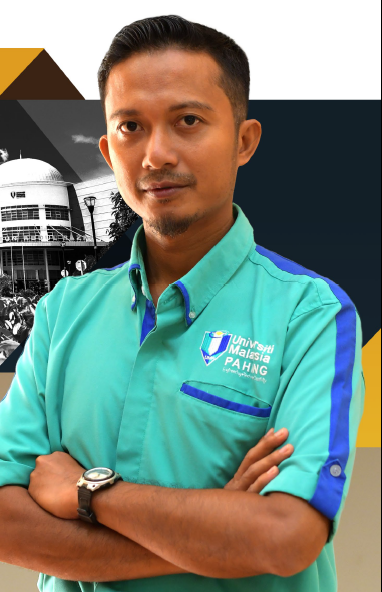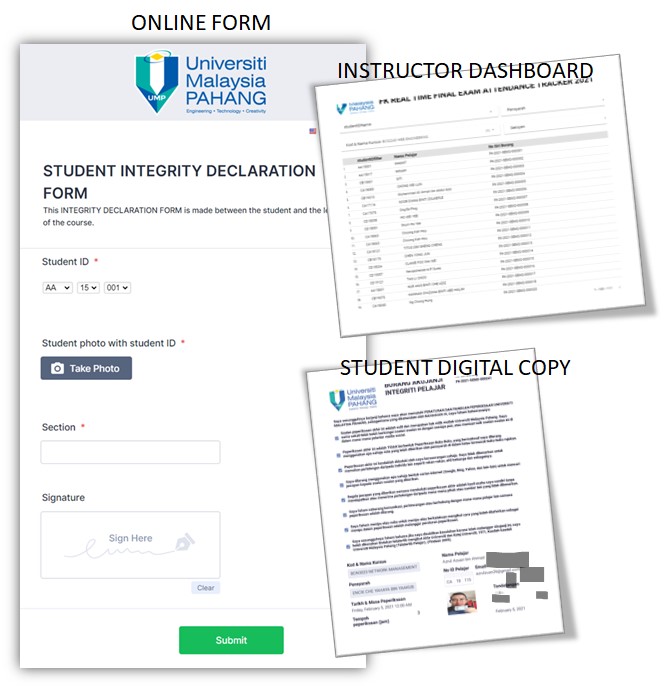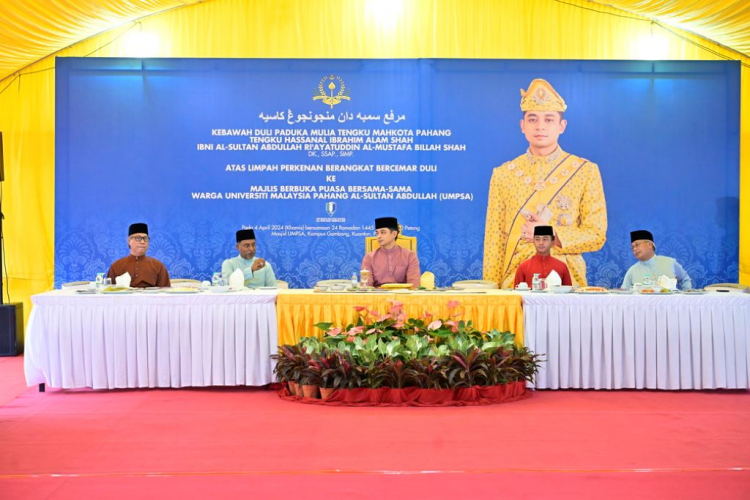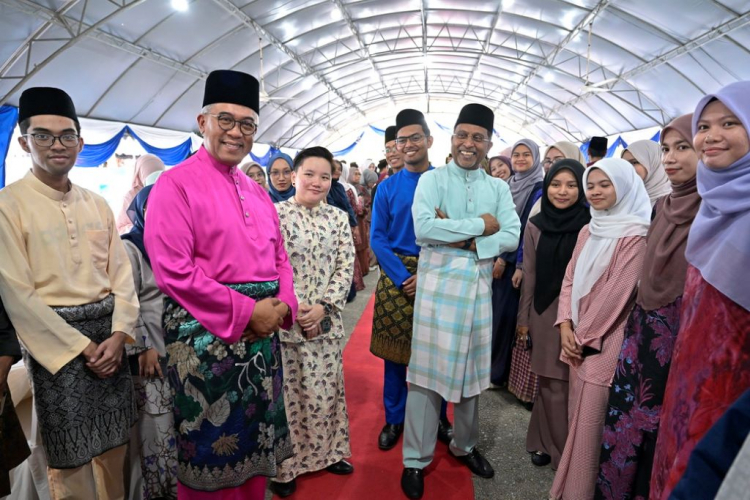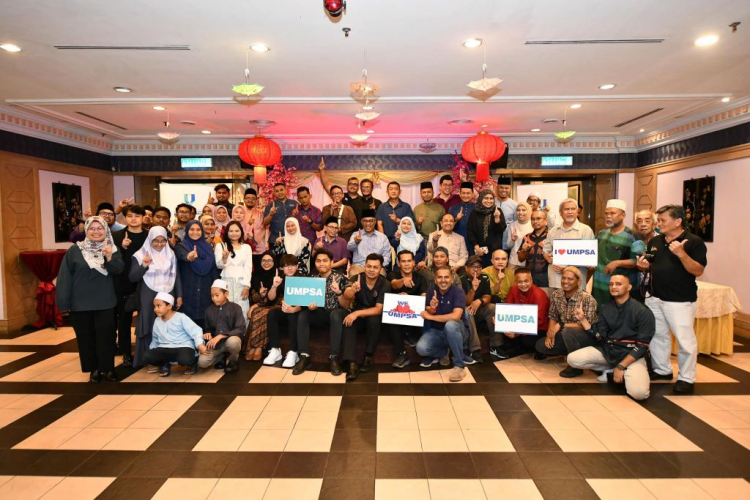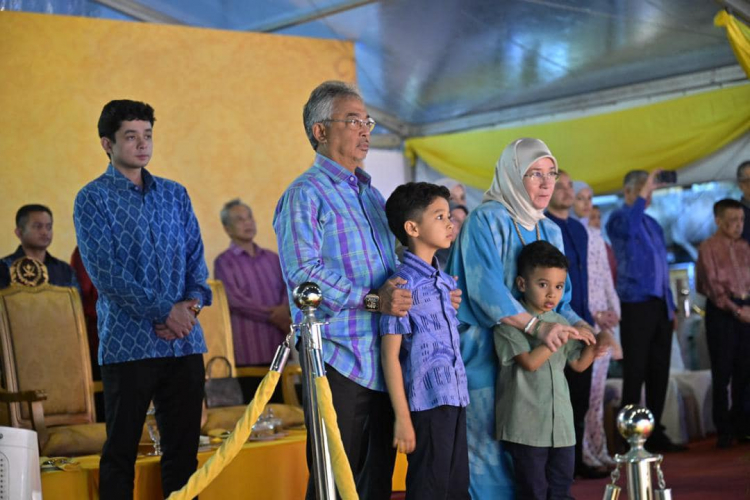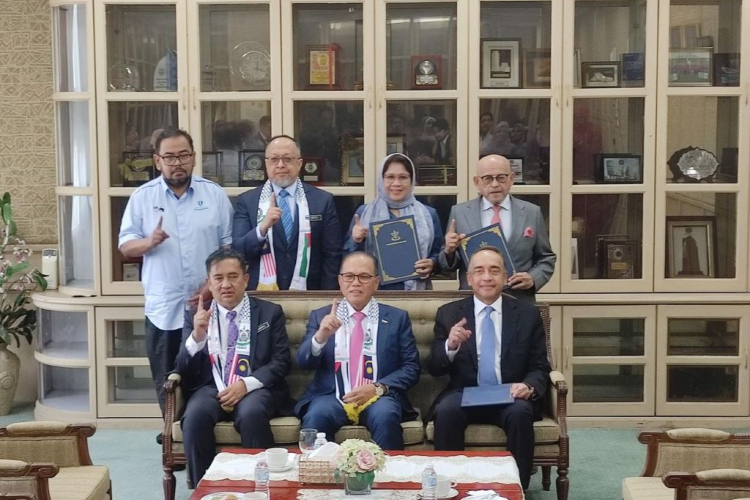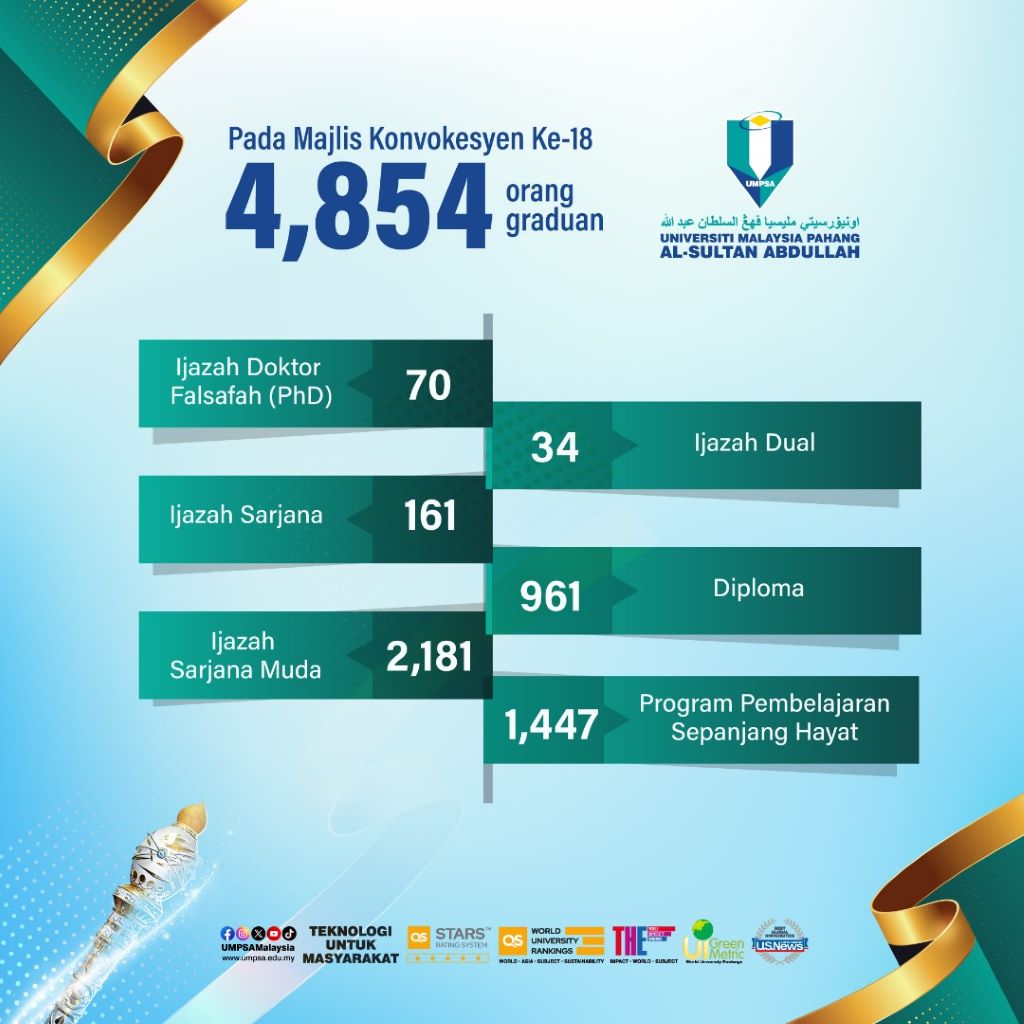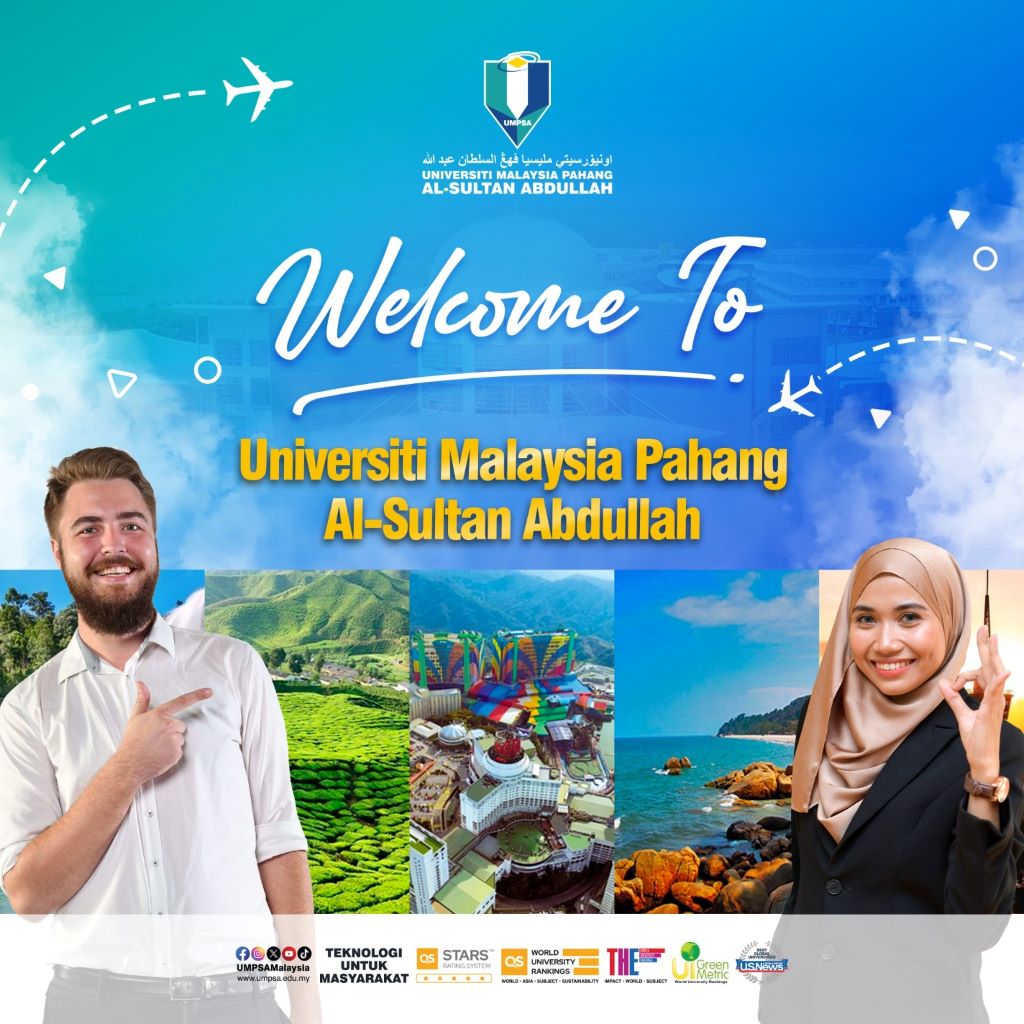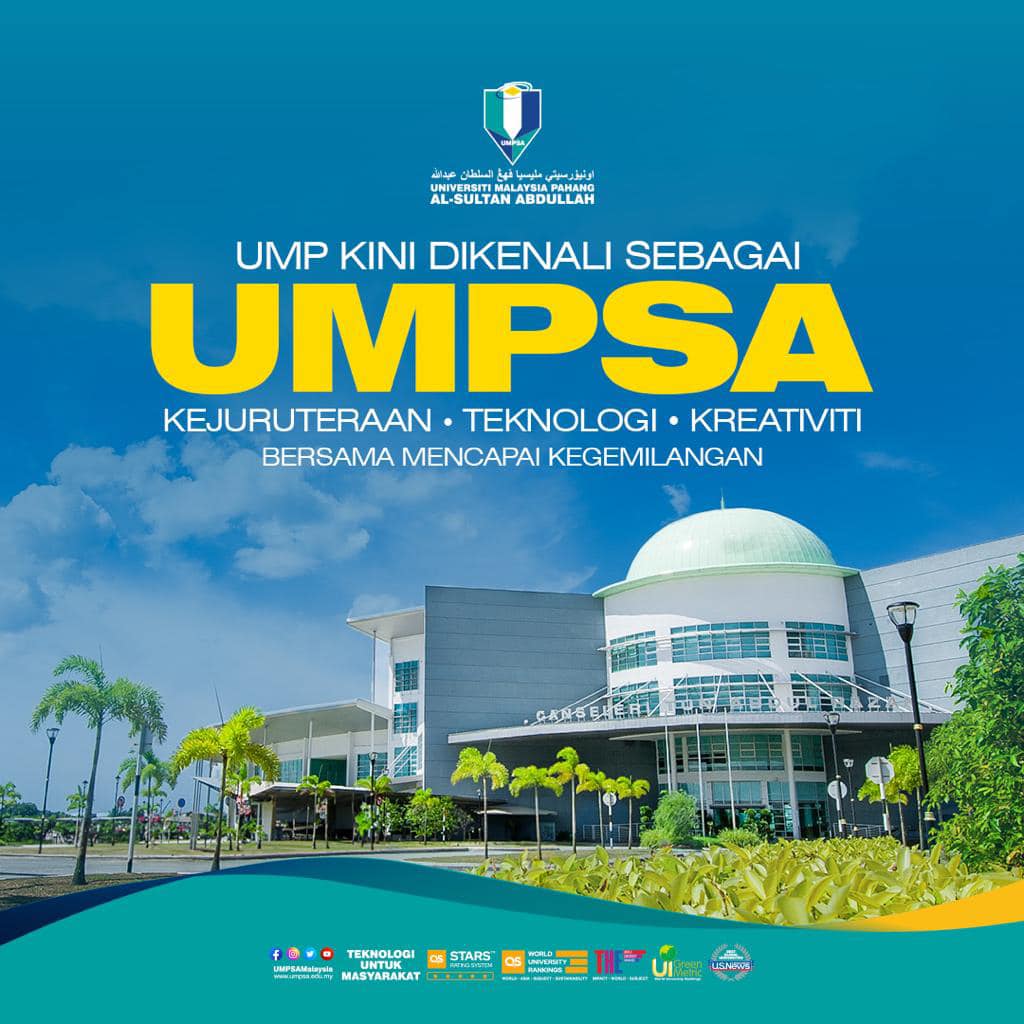Ts. Aziman creates automation application to manage final exam students attendance
PEKAN, 9 February 2021 - Facing the COVID-19 pandemic demands honesty and integrity as the important principles in the academic world.
In particular, UMP lecturers have done their best to ensure honesty and integrity are achieved especially during the online final examination.
Based on the situation, a lecturer from the Faculty of Computing (FK), Universiti Malaysia Pahang (UMP), Ts. Aziman Abdullah, 43, created an automation online application system for the final exam student attendance management process during the COVID-19 pandemic.
This research was also supported by the Dean, Associate Professor Ts. Dr. Adzhar Kamaludin and Deputy Dean (Academic and Student Affairs), Associate Professor Dr. Rohani Abu Bakar.
According to Ts. Aziman, his task as the exam invigilator prompted the concept of the application.
“During that time, I needed to manually verify the students’ attendance record repeatedly.
“It was not productive and prone to human error,” he said.
This research began in 2008 (RDU080329) to study the aspect of students’ attendance records through web service.
According to Ts. Aziman, a mobile application prototype using Windows Mobile-based device was developed to record students’ attendance by the invigilators using computers.
“At that time, smartphone technology was new in the market and rarely used due to the cost and internet coverage.
“It is no longer relevant in today’s context as various smartphone technologies require a more universal design and approach such as cloud technology.
“However, the increasing internet access coverage, the use of smartphones by students and the establishment of cloud technology made the development of the application more efficient and easier to execute,” he said.
He generated the automation process concept using cloud computing platform and data analytic using the dashboard concept to record the students’ integrity declaration and simultaneously to process as the proof of students’ attendance in the online final exam.
He added that through this concept, lecturers need to provide the link to the online integrity form via social media such as WhatsApp group or UMP e-learning system (KALAM).
“Students need to complete the integrity declaration with personal details such as name, course code, section and lecturer’s name.
“The data will be processed real-time and displayed in the form of an online dashboard.
“Lecturers can search and verify whether students complete the declaration form or not as the proof of attendance,” he said.
He further explained that if lecturers realise that students do not complete the integrity declaration form, they may contact them.
“The faculty management can monitor the statistics based on course code, date and lecturer’s name in real-time.
“The ultimate goal of this research is to encourage the implementation of data-driven decision-making exercise and quality improvement especially in terms of real-time reporting so to fully benefit the opportunity and manage to reduce the risk of human error effectively.
“The attendance automation application and real-time reporting can be implemented in any sectors in the industry and society,” he said.
With the implementation of working from home (WFH) during the COVID-19 pandemic, this attendance automation application can be used by organisations to monitor the status of employees to adhere to the standard operating procedures (SOP) with the integration of spatial data or their locations.
“Community in housing areas can also benefit from this concept in monitoring the safety aspect through cloud and real-time reporting of in and out movement.
“I am also planning to expand this application to educational institutions that carry out examinations and require the realisation of integrity and real-time attendance record.
“Besides, this application can be extended to organisations or employers as attendance record system for remote workers and local authorities in monitoring the safety and compliance with local laws such as real-time reporting of environmental pollution,” he said.
Ts. Aziman said cloud services depend on the package of data to be stored.
“The cost roughly involves consultation fee as to how the application can meet the needs of an organisation or individual.
“These requirements are usually different and call for adjustment on the application and report design.
“The estimated consultation cost for less than 100 records per month is RM300 per session,” he said.
He anticipates collaborating with organisations that are interested in the innovation using cloud platform and data analytic in boosting the Industrial Revolution 4.0
He bagged a silver medal in the International Invention, Innovation and Technology Exhibition 2007 (ITEX 2007) for a project Mobile Student Verification System for Major Examination (S-VEC).
In the online Malaysia Technology Expo (MTE) 2020 Special Edition: COVID-19 International Innovation Awards on 2 November 2020, this work bagged another silver medal.
By: Nur Hartini Mohd Hatta, UMP PRESS
Translation by: Dr. Rozaimi Abu Samah, Engineering College/Faculty of Chemical and Process Engineering Technology


